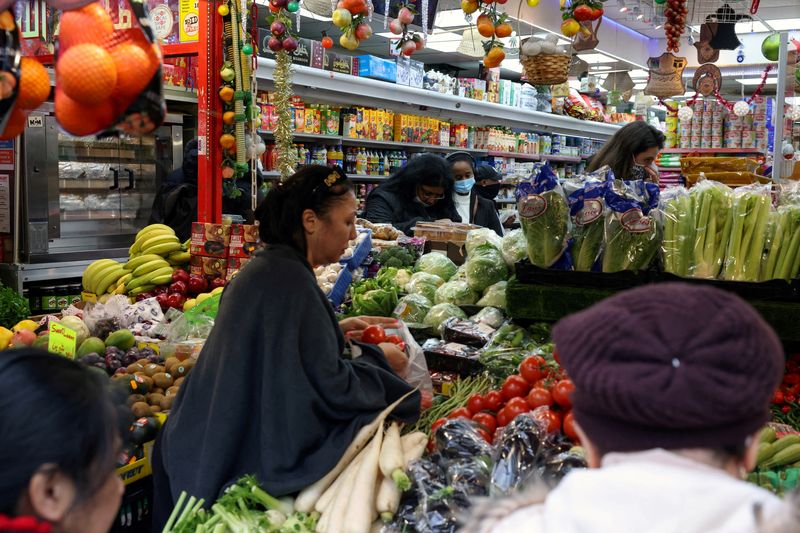LONDON (Reuters) - Britain's inflation rate hit its highest since March 1992 in January when it rose to 5.5% and is expected to extend its climb to above 7% in April, prompting fears of the sort of wage-price spiral that once dogged the country's economy.
Here are five things that have changed the inflation picture since the early 1990s.
BANK OF ENGLAND - The British central bank was only given an inflation target in October 1992, after the country fell out of the European Exchange Rate Mechanism which had kept sterling pegged against a basket of other European currencies.
The central bank gained full operational independence in 1997, taking responsibility for supporting or slowing the economy via interest rates out of the hands of politicians. Since then, inflation has averaged roughly 2% a year.
THE LAWSON BOOM - Britain's economy boomed in the late 1980s and sweeping tax cuts by Margaret Thatcher's finance minister Nigel Lawson were blamed for a sharp rise in inflation. Current finance minister Rishi Sunak has overseen the biggest-ever peacetime borrowing surge to prop up the economy during the COVID-19 pandemic, but the tax burden is now on course to hit its highest since the 1960s.
WAGE DEALS - Another driver of Britain's high inflation three decades ago were strong wage increases that were secured by trade unions, which remained powerful players in the early 1990s despite a big decline in their membership over the previous decade. Wage increases have lagged behind inflation for much of the period since the global financial crisis of 2008-09.
STERLING - In March 1992, the pound was still part of the European Exchange Rate Mechanism which kept the currency pegged at a value that proved too high for the government and the Bank of England to defend against speculative attack six months later on "Black Wednesday". The de-pegging of the pound eventually set Britain's economy on course for a recovery.

INTEREST RATES - The BoE kept its base rate above 10% throughout much for the 1980s and it stood at 10.375% in March 1992. Bank Rate is currently about one-twentieth of that level at 0.5%. It is expected to rise as the BoE seeks to stamp out any long-term increase in inflation expectations, but only to about 2% in a year's time, according to interest rate futures markets. Private economists think it will peak lower than that.
CHINA - The rise of China and other low-cost manufacturing countries in the 2000s helped bring down inflation for consumers in rich economies around the world. But the gradual rise of costs in emerging economies, and more recently the disruption wrought by the coronavirus pandemic, has hammered global supply chains, pushing up prices for many goods.